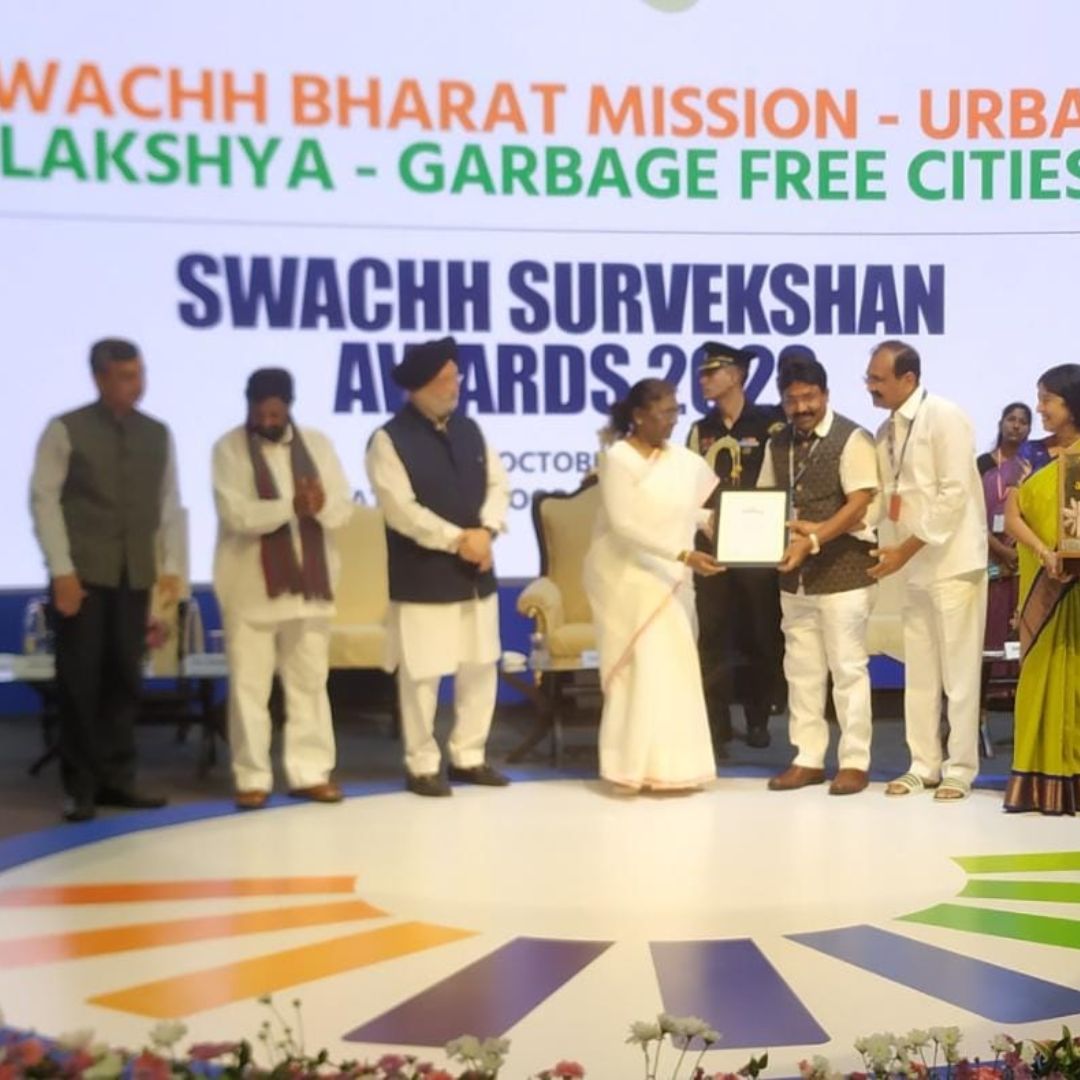
Image Credit- DD News
Indore: India's Cleanest City Has No Garbage Bins, Generates Millions Of Rupees From Its Waste
Writer: Ishita Singh
She is a versatile content writer, an orator and a graphic designer who prefers multitasking under pressure and complies with the deadline.
Madhya Pradesh, 3 Oct 2022 4:32 AM GMT
Editor : Shiva Chaudhary |
A post-graduate in Journalism and Mass Communication with relevant skills, specialising in content editing & writing. I believe in the precise dissemination of information based on facts to the public.
Creatives : Shiva Chaudhary
A post-graduate in Journalism and Mass Communication with relevant skills, specialising in content editing & writing. I believe in the precise dissemination of information based on facts to the public.
Madhya Pradesh's largest city, with a population of 35 lakh, is garbage bin-free, despite producing 1,200 tons of dry waste and 700 tons of wet waste daily. In Indore, waste segregation occurs in six types at a collection point.
Indore city of Madhya Pradesh has won the title of the cleanest city in India for the sixth consecutive year, thanks to the daily processing of 1,900 tons of municipal trash, which generates millions of rupees in revenue and supplies fuel for its buses.
The findings of the annual cleanliness survey conducted by the Union government were released on Saturday (October 1), wherein the cleanest cities were declared to be Indore, Surat, and Navi Mumbai.
Segregation Of Waste In Six Types
The state's commercial capital and Madhya Pradesh's largest city, with a population of 35 lakh, is garbage bin-free, despite producing 1,200 tons of dry waste and 700 tons of wet waste daily. While garbage is commonly separated into dry and wet categories, in Indore, segregation occurs into six types at a collection point.
Mahesh Sharma, the superintendent engineer of the Indore Municipal Corporation's (IMC) cleanliness wing, said, "We have 850 vehicles which collect waste from households and business establishments and segregate it into six categories," quoted NDTV.
Sharma said the vehicles have compartments for various types of waste; discarded sanitary napkins, for example, are placed in separate containers. This sorting at the beginning of the collection process is helpful for efficient processing.
Sewage Treatment At Three Distinct Plants
The IMC's waste disposal process is highlighted by a bio-CNG plant on wet waste collected from the city. According to city officials, it is Asia's largest such facility.
Prime Minister Narendra Modi inaugurated this 550 MT per day capacity plant at the Devguradia trenching ground on February 19 this year. It can produce 17,000 to 18,000 kg of bio-CNG and 10 tons of organic manure. As many as 150 city buses are powered by Bio-CNG, which is five times less expensive than commercial CNG.
The IMC earned Rs 14.45 crores from waste disposal last fiscal year, including Rs 8.5 crores from the international sale of carbon credits and Rs 2.52 crores as an annual premium from a private company for providing waste to the bio-CNG plant.
According to the Superintendent Engineer, the civic body hopes to earn Rs 20 crores from waste disposal in the current fiscal year. He added that up to 8,500 Safai Mitras (sanitary workers) work three shifts to keep the city clean.
According to horticulture officer Chetan Patil, sewage generated in the city is treated at three unique plants before reusing 200 public gardens, farms, and construction sites.
Also Read: With 7.3% Growth In 2022-23, India Will Be A 'Star' Among Emerging Market Economies: Report
 All section
All section













